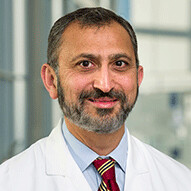Adolescent Bariatric Weight Loss Surgery
Adolescent Bariatric Weight Loss Surgery
Adolescent Bariatric Weight Loss Surgery
Obesity is a complex disease that affects more than a third of people in the United States. Many of these people are teenagers who try their best to lose weight, but still struggle. For some teens, weight loss (metabolic and bariatric)surgery can be a good option to get to a healthier weight .
The Children’s Health Bariatric Surgical Center works with adolescents and their families to address the problem of obesity. We identify candidates for weight loss surgery and provide the surgical, medical, nutritional, emotional and social support necessary for adolescents.
Contrary to popular belief, having weight-loss surgery is not “cheating”. Rather, it’s a long-term commitment to improving health – one that requires teens to change their eating and activity habits. Our team helps teens transform their relationship with food, their bodies and their health. This team includes the only pediatric-trained bariatric surgeon in North Texas. It also includes a physician assistant, social workers and psychologists.
Together, we take time to understand how things like family dynamics, school, stress or trauma affect each patient’s eating habits. We then determine if weight loss surgery is the best option. If it is, we provide expert care and as much emotional and educational support as our patients need – before, during and after surgery.
Our Programs
- Pediatric Endocrinology
- General and Thoracic Surgery
- Pediatric Psychiatry and Psychology
- Adolescent Weight Loss Support
- Clinical Nutrition
- Get Up & Go
- Pediatric Weight Management Program
- COACH Program for Childhood Obesity and Weight Management
- General and Thoracic Surgery
- Lipid Disorders Program
- Research: Pediatric Cardiology
- Pediatric Diabetes Program
- Pediatric Endocrinology
Conditions We Treat
Expertise in gastric sleeve surgery for teens
Teens, unlike adults, are still growing. This means that performing weight loss surgery on teens requires special training. Our board-certified pediatric surgeon is one of only a few dozen surgeons in the country who have this training and the expertise that comes with it.
We specialize in gastric sleeve surgery (also called sleeve gastrectomy) for teens ages 12 to 18, who have a high body mass index (BMI) and a weight-related condition like Type 2 diabetes or high blood pressure. Gastric sleeve surgery is now the standard type of weight loss surgery for teens.
There are several benefits to having weight-loss surgery as a teen. These benefits include:
Fewer surgery complications (such as blood clots) compared to adults
Faster resolution of weight-related health problems
Enjoying a greater number of healthy years ahead
Improved self-esteem
When needed, we also perform gastric sleeve revision surgery. This can be necessary for teens who had bariatric surgery at another center and haven’t reached their goals. It may also be necessary if they’ve regained weight or had problems from their original surgery.
Weight loss surgery can be an effective way to reach a healthy weight, reduce the likelihood of chronic diseases and increase one's self-esteem.
Proven weight loss results for teens
Teens who go through our program generally experience more success than is possible without surgery.
Research shows that making diet and exercise changes typically helps people lose 3% to 5% of their overall body weight. But teens experiencing obesity often need to lose more than that.
Metabolic and Bariatric surgery can be a great tool for a teenager to take better control of their health. This is because the long-term success of surgery depends on developing healthier habits. We work on those habits for months before surgery – and for years after surgery. Teens who have surgery and follow our program’s guidelines typically:
Lose 25% to 50% of their body weight, in 6 to 12 months after surgery.
Have an 80% decrease in weight-related health issues. These can include diabetes, high blood pressure, high cholesterol and sleep-disordered breathing.
A judgment-free approach to weight management
Many factors can contribute to obesity. These factors can include a person’s metabolism and family history. It also includes how hard it can be to find or pay for healthier foods. Our team looks at obesity through all these issues compassionately.
Our approach starts with a full evaluation of each adolescent’s mental and physical health. This helps us understand which factors are contributing to their obesity. For example, our evaluation may include understanding how other health conditions or medications affect a patient’s metabolism. It could also include a genetic test or a sleep study to identify underlying genetic disorders or sleep issues.
When a teenager comes to our program, they get the benefit of an expert team that includes:
Surgeons: Our specially-trained bariatric surgeon evaluates over a 100 patients per year and, with low complication rates.
A program coordinator: Our coordinator is a physician assistant who serves as your go-to person to answer all your questions. This helps you know what to expect from surgery – and gives you support at every step of the way.
Endocrinologists: Our pediatric endocrinologists evaluate teens for hormone imbalances and metabolic problems that can contribute to weight problems.
Dietitians: Our dietitian helps patients find recipes they like, plan meals and identify healthy, affordable alternatives to unhealthy foods. They also help you closely follow our eating guidelines before and after surgery.
Social workers: Our social workers provide mental health support and financial support. They also help teens learn how to manage stress in a healthy way, which can lead to a healthier relationship with food.
Psychologists: Our psychologists provide counseling for bullying or self-esteem issues. They can also help with trauma or difficult family issues.
Long-term support to stay on track
Life can get hectic, and we know staying on track with healthy food choices can be difficult at times. If you or your teenager need support with staying focused on your goals, we’re always here for you.
After surgery, our team does everything we can to help keep the healthy momentum going. We see each patient regularly, talk about what they're eating and give them tips on how to stay healthy.
We help every teen and their family stay motivated and supported by offering:
Convenient, home monitoring of weight, diet and exercise.
Ongoing visits with our program coordinator, social worker and dietitian.
Ongoing visits with our psychologist as needed
A full five years of follow-up care.
Many times, our ongoing support has a ripple effect through an entire family. Many families start eating healthier together and doing things like taking family walks after dinner.
Expertise in gastric sleeve surgery for teens
Teens, unlike adults, are still growing. This means that performing weight loss surgery on teens requires special training. Our board-certified pediatric surgeon is one of only a few dozen surgeons in the country who have this training and the expertise that comes with it.
We specialize in gastric sleeve surgery (also called sleeve gastrectomy) for teens ages 12 to 18, who have a high body mass index (BMI) and a weight-related condition like Type 2 diabetes or high blood pressure. Gastric sleeve surgery is now the standard type of weight loss surgery for teens.
There are several benefits to having weight-loss surgery as a teen. These benefits include:
Fewer surgery complications (such as blood clots) compared to adults
Faster resolution of weight-related health problems
Enjoying a greater number of healthy years ahead
Improved self-esteem
When needed, we also perform gastric sleeve revision surgery. This can be necessary for teens who had bariatric surgery at another center and haven’t reached their goals. It may also be necessary if they’ve regained weight or had problems from their original surgery.
Proven weight loss results for teens
Teens who go through our program generally experience more success than is possible without surgery.
Research shows that making diet and exercise changes typically helps people lose 3% to 5% of their overall body weight. But teens experiencing obesity often need to lose more than that.
Metabolic and Bariatric surgery can be a great tool for a teenager to take better control of their health. This is because the long-term success of surgery depends on developing healthier habits. We work on those habits for months before surgery – and for years after surgery. Teens who have surgery and follow our program’s guidelines typically:
Lose 25% to 50% of their body weight, in 6 to 12 months after surgery.
Have an 80% decrease in weight-related health issues. These can include diabetes, high blood pressure, high cholesterol and sleep-disordered breathing.
A judgment-free approach to weight management
Many factors can contribute to obesity. These factors can include a person’s metabolism and family history. It also includes how hard it can be to find or pay for healthier foods. Our team looks at obesity through all these issues compassionately.
Our approach starts with a full evaluation of each adolescent’s mental and physical health. This helps us understand which factors are contributing to their obesity. For example, our evaluation may include understanding how other health conditions or medications affect a patient’s metabolism. It could also include a genetic test or a sleep study to identify underlying genetic disorders or sleep issues.
When a teenager comes to our program, they get the benefit of an expert team that includes:
Surgeons: Our specially-trained bariatric surgeon evaluates over a 100 patients per year and, with low complication rates.
A program coordinator: Our coordinator is a physician assistant who serves as your go-to person to answer all your questions. This helps you know what to expect from surgery – and gives you support at every step of the way.
Endocrinologists: Our pediatric endocrinologists evaluate teens for hormone imbalances and metabolic problems that can contribute to weight problems.
Dietitians: Our dietitian helps patients find recipes they like, plan meals and identify healthy, affordable alternatives to unhealthy foods. They also help you closely follow our eating guidelines before and after surgery.
Social workers: Our social workers provide mental health support and financial support. They also help teens learn how to manage stress in a healthy way, which can lead to a healthier relationship with food.
Psychologists: Our psychologists provide counseling for bullying or self-esteem issues. They can also help with trauma or difficult family issues.
Long-term support to stay on track
Life can get hectic, and we know staying on track with healthy food choices can be difficult at times. If you or your teenager need support with staying focused on your goals, we’re always here for you.
After surgery, our team does everything we can to help keep the healthy momentum going. We see each patient regularly, talk about what they're eating and give them tips on how to stay healthy.
We help every teen and their family stay motivated and supported by offering:
Convenient, home monitoring of weight, diet and exercise.
Ongoing visits with our program coordinator, social worker and dietitian.
Ongoing visits with our psychologist as needed
A full five years of follow-up care.
Many times, our ongoing support has a ripple effect through an entire family. Many families start eating healthier together and doing things like taking family walks after dinner.
Meet the Care Team
 Faisal Qureshi, MDPediatric Surgeon
Faisal Qureshi, MDPediatric Surgeon Grayce Summers, PA-CPhysician Assistant - Pediatric Surgery
Grayce Summers, PA-CPhysician Assistant - Pediatric Surgery Brandi AllenRegistered Dietitian (RD)
Brandi AllenRegistered Dietitian (RD)

